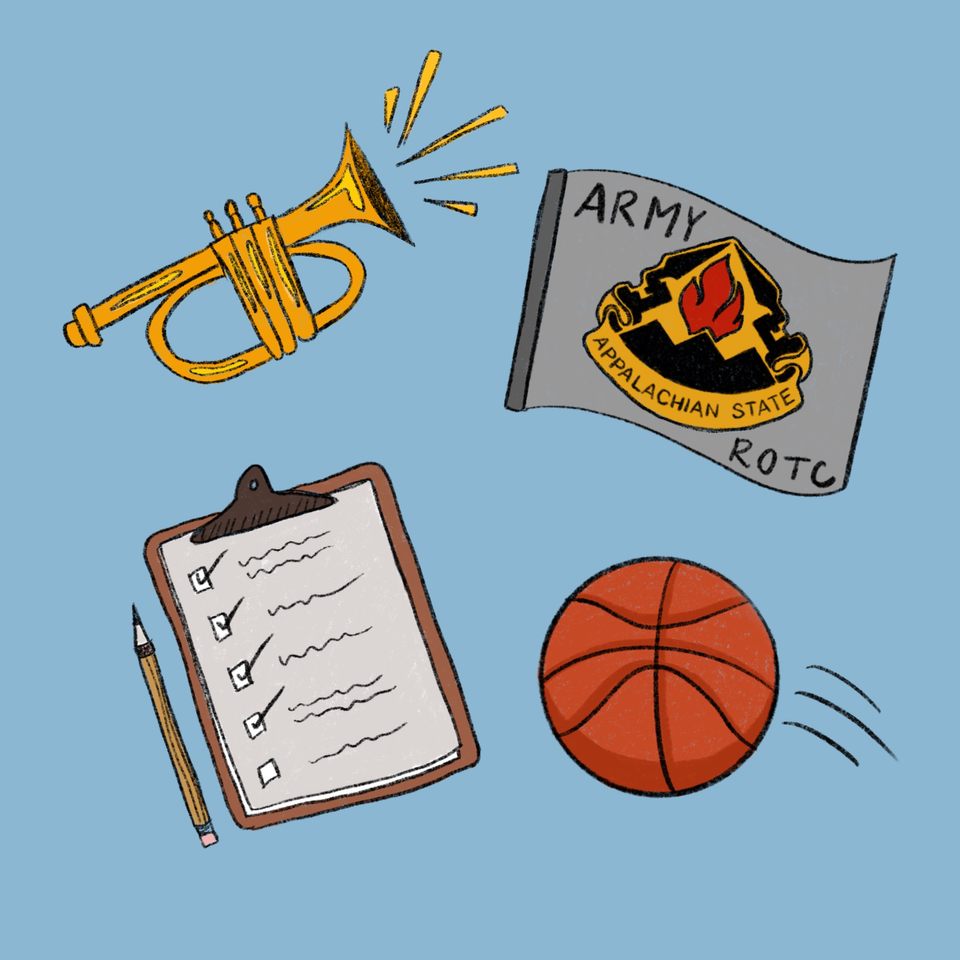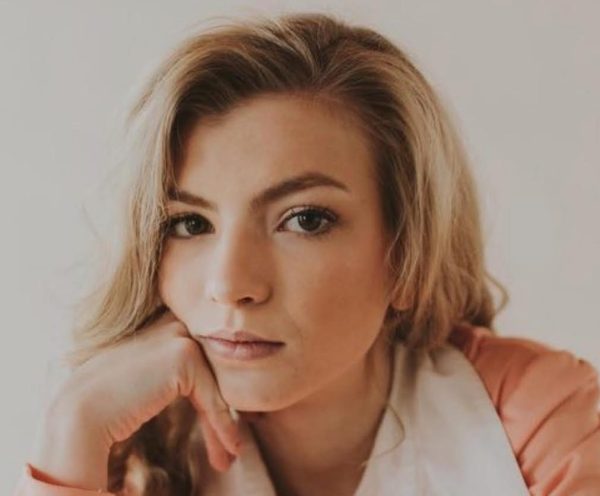Thousands of students will wake up on the mornings of May 10 and 11 and prepare to take their final steps as App State students. There are many things students may do to prepare for such a momentous occasion: taking showers, brushing their hair, putting on robes and cords, meeting up with family and friends and steadying their nerves.
However, many of these students might not think about the numerous steps that are taken to prepare for this significant day and its thousands of attendees, and further, the people who work to make it a success.
To host the six commencement ceremonies, many university employees, students, faculty and others must work together.
Professor of Music/Trumpet James Stokes, Lead Pershing Rifleman William Gulley, Director of Holmes Convocation Center Jason Parker and Operations Manager and Commencement Coordinator Mary Banks each work in unique ways in the organization of the ceremonies.
James Stokes
James Stokes has worked for App State since 2006 when he was hired as an associate professor and has participated in the commencement ceremony since 2009. He is the conductor of the Appalachian Brass Ensemble, the group responsible for most of the music played during the ceremonies.
The ensemble will perform “Pomp and Circumstance” and “The Star-Spangled Banner” during the processional, and “Procession of the Scholars” and “Hi Hi Yikas” during the recessional, according to the commencement ceremony schedule.
To prepare, the ensemble holds an additional practice session the day before the ceremony and does a quick sound check before the ceremony, Stokes wrote in an email.
“There are years of practice and preparation for the professional quality performance that our students present in our ceremonies,” Stokes wrote. “They are up to the task with our brief rehearsal and sound check.”
The brass ensemble has been participating in the ceremony for decades, Stokes wrote.
Throughout the processional and recessional music, the ensemble members communicate with each other while performing. The processional for the College of Arts and Sciences can last as long as 15-20 minutes, so the student performers must pace themselves and each other to ensure they play smoothly throughout the time.
“We are very proud of our students’ ability to play at such a high level for our school and for the commencement ceremonies of which our graduates will celebrate every year in May and December,” Stokes wrote.
William Gulley
William Gulley, a junior economics major, said this will be the third year of commencement ceremonies he will have participated in. He is a member of App State’s unit of the National Society of the Pershing Rifles through the ROTC.
The Pershing Rifle’s Engage page says the group is “the face of all military events on Appalachian State University’s campus.”
“It’s a national society for ROTC. Its main foundation is drill and ceremony, but they also try to focus on small leadership development, as well,” Gulley said.
The App State unit’s main focus is on color guard events in the community, Gulley said.
The Pershing Rifles has a short part in the commencement ceremony presenting the colors and Gulley said it is one of the easier events the group takes part in.
The difficult part, Gulley said, is trying to get enough volunteers for the event because it takes place after the academic year has ended and many Pershing Rifle members have already left town.
There are five members of the unit that attend the ceremony, four of whom participate and one attends as an alternate. This way they can cycle in and out of ceremonies over the two days.
Gulley said the members usually practice for about two hours before the ceremony to avoid any missteps.
“At the point we do it, we already have, like, an experienced team — people that have already been doing this for a while. So it’s just a quick run-through,” Gulley said about preparing for the ceremony.
He said he enjoys participating in the ceremony because it gives him time to socialize with other Pershing Rifle members and he can watch friends and classmates walk across the stage.
Jason Parker
As director of the Holmes Convocation Center — a position Jason Parker has held for 18 years — Parker and his team’s participation in the commencement ceremony is extensive. He has participated in the ceremony for 23 years.
His team is responsible for setting up and breaking down equipment needed, maintaining safety through bag checks and metal detector monitoring, operating sound and lighting equipment and more, Parker wrote in an email.
“As the manager of the team that handles the activities I described above, I am providing oversight and ensuring my team has what they need to make sure the day goes smoothly for the graduates and their loved ones,” Parker wrote.
Parker said students may not be aware that most of the preparation for the event is performed by the App ELITE team.
According to a job listing, members of App ELITE facilitate the set-up, break-down and security of many events in the Holmes Convocation Center, Schaefer Center of the Performing Arts and other event venues.
“It is great to be a part of watching students fulfill their dreams of getting a college education and the Commencement ceremonies are the culmination of all that hard work,” Parker wrote. “It is great to see the pride and happiness that families have in the accomplishment of their student.”
Mary Banks
Mary Banks said the commencement ceremonies are some of her favorite activities she participates in through her role as operations manager and commencement coordinator in the Office of University Events.
“I think of how each student that walks across the stage is a story,” Banks wrote in an email. “Some students have had to overcome greater obstacles than others to get there, but when they enter the arena floor, they all share a single sentiment, ‘I made it!’”
As commencement coordinator, Banks is involved in many different aspects of the ceremony, including designing and distributing printed materials, assembling scripts, coordinating training and rehearsals and much more.
“We are all-hands-on-deck for whatever is needed,” Banks wrote. “Truly, the entire campus springs into action to make commencement a success.”
Banks wrote that she has been working in this role for two years and has participated in the organization of the commencement ceremony for five years. Banks has worked for App State for 13 years.
“It’s just a great day, students are excited, families, faculty, staff are all excited and so proud of the accomplishments of their students,” Banks wrote.



patrick richardson • May 7, 2024 at 10:29 am
Don’t forget the HVAC and Controls team.
The programming and configuration that keeps graduates reasonably cool and with fresh air took months to program and design. Technical staff are on site the entire weekend monitoring conditions and working behind the scenes to take a space designed to hold 90 people and make it work reasonably well for 1000.